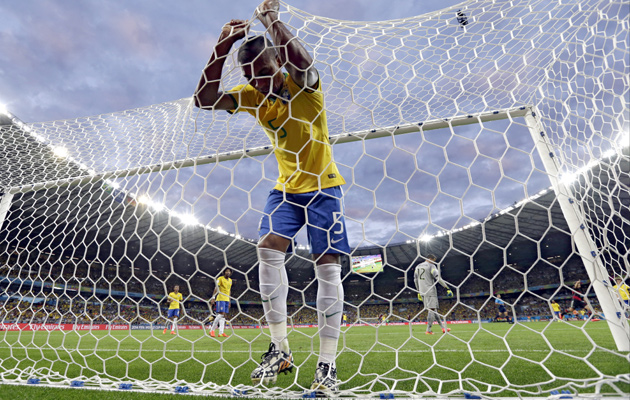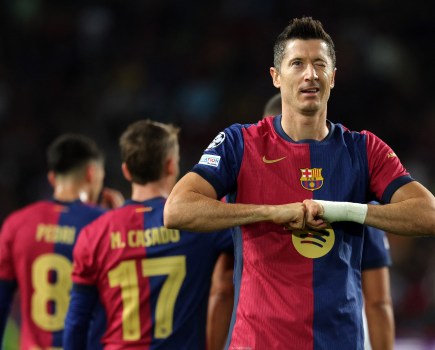Over the last 48 hours the popular observation has been that Brazil is a country in mourning. The humiliating semi-final defeat to Germany has shattered the nation, leading to an outpouring of grief over the state of the selecao. The tears shed by David Luiz and the other Brazil players have been reproduced around the country in an act of collective bereavement.
We need to keep things in perspective. As I write, I can see out of my hotel window in Sao Paulo on to the street below. Brazilians are going about their daily business. Nobody has jumped off a rooftop; nobody has thrown themselves under a bus. Life in Brazil goes on.
The Brazil flags are still much in evidence. The yellow national shirts are still worn, although few were in evidence last night at the Holland-Argentina match. But I’ve not encountered any anger towards the players; nobody has ranted in the street about the failings of Luiz Felipe Scolari or Fred. Brazil is in shock at the scale of the defeat, and perhaps the full scale of the humiliation has yet to sink in.
There is almost an understanding among ordinary Brazilians that they contributed to the collapse of the national side. The atmosphere in Belo Horizonte was unlike any other match I have attended. The mental pressure on the players must have been overwhelming. They had been carried to the semi-finals on a national tide of emotion; the tears shed by Julio Cesar and David Luiz were a sign that the squad was struggling to stay in control of their emotions.
When Germany’s second goal went in, the world caved in on the selecao. There was no Neymar to save the day. There was no Thiago Silva, Brazil’s captain and only true defender, to help rebuild their confidence. The pressure from the Brazilian public had been too much to bear. Brazil’s players suffered an unprecedented mental breakdown on the pitch, conceding a further three goals in an extraordinary sequence of events before half-time.
The shock may yet turn to anger. For now, there is almost a sense among Brazilians of guilt that they were responsible for the build-up of expectations that overwhelmed the players in such spectacular style.
Comparisons with the Maracanazo of 1950 are unhelpful. That was 64 years ago; Brazil was a very different country. The national side had yet to win the World Cup and went into the final match (not the Final, but the last game of the decisive final round of matches) needing to beat Uruguay. Brazil lost the game because they got their tactics wrong. They were complacent and took victory for granted. The players were condemned for throwing away a golden opportunity to win Brazil’s first World Cup.
In 2014, Brazil are five-times world champions. There was a national sense of entitlement to a sixth title. But defeat to Germany shattered that mood and exposed the arrogance and complacency that has existed in Brazilian football for many years.
Hopefully, there will now be a root-and-branch examination of the problems of Brazilian football: the chaotic league structures, the sale of youngsters abroad, the trigger-happy club owners. Certainly, national politicians will not hold back from criticism of Brazil’s football administrators.
When Germany went out at the group stages of Euro 2000 and lost 5-1 to England in Munich a year later, there was a fundamental rethink of the country’s football structures. The nationalmannshaft have moved on tactically, as well, taking elements of Spain’s tiki-taka approach and blending them with elements of their own game. They go into Sunday’s Final against Argentina as favourites.
Over the past decade Brazilian football has stagnated tactically, both at club or international level. Scolari will be the main scapegoat for that shortcoming in the coming weeks. But the Brazilian people have a role to play, too, in moving on from the disaster of the 2014 World Cup.







